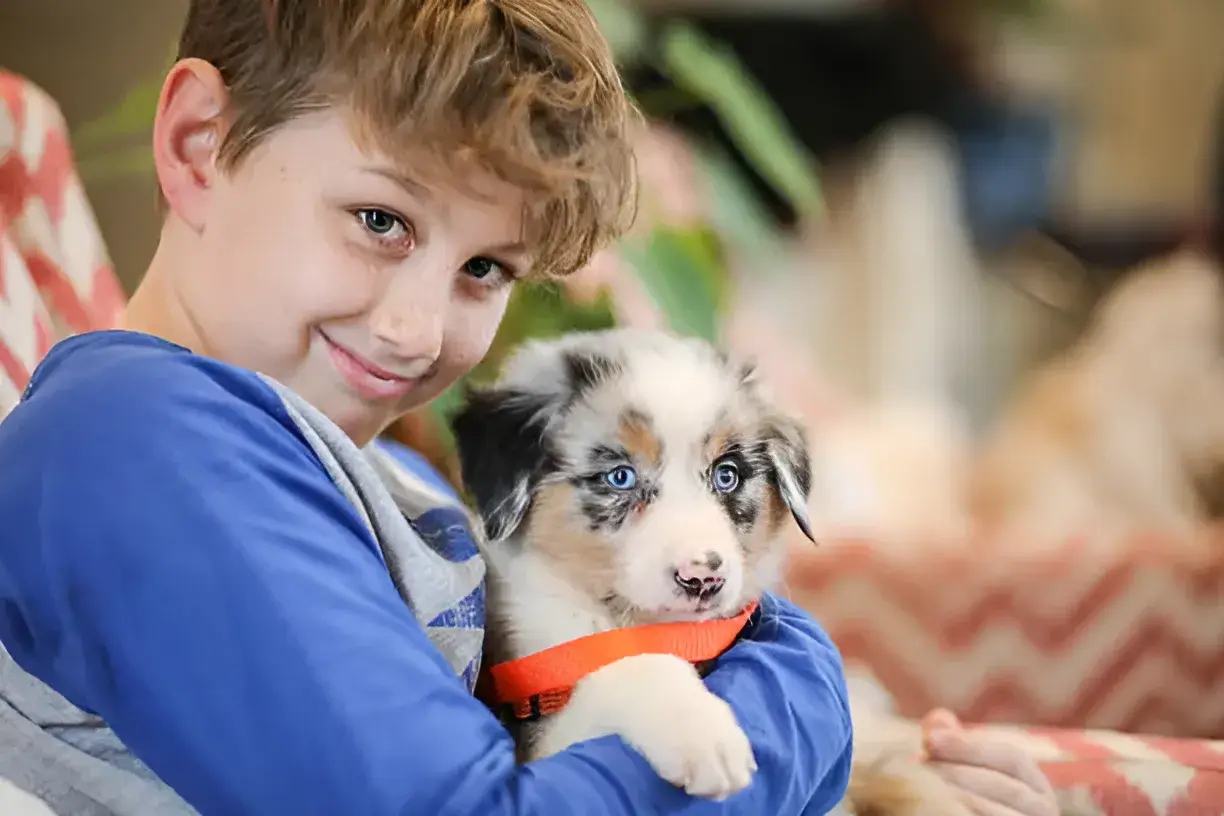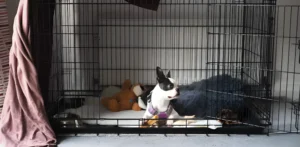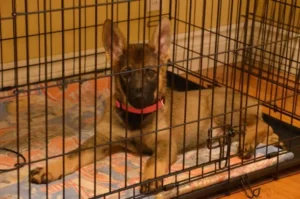Your new puppy is going to be a wonderful addition to your family, but bringing home a furry friend takes planning. Here’s the ultimate guide to ensure both you and your pup are ready for the exciting transition.
Puppy-Proofing Your Home
Hazard Hunt: Get on puppy-level and tour your home, removing choking hazards, securing wires, and hiding toxic substances. Invest in childproof cabinet locks and baby gates to restrict access.
Safe Zone: Designate a puppy-safe area—a room, playpen, or large crate—especially for the early days. This provides a secure haven for potty breaks, naps, and when you can’t supervise.
Protect Your Possessions: Put away shoes, toys, and valuables. Offer plenty of appealing chew toys as alternatives to keep your pup from practicing their teething skills on your belongings!
Essential Puppy Supplies
Nourishment: High-quality puppy food (consult your vet), food/water bowls, and perhaps some training treats.
Comfort: A soft bed, cozy crate (if crate training), blankets, absorbent puppy pads for potty training.
Safety & Exploration: Size-appropriate collar, leash, harness, ID tag with your contact info, car safety restraint.
Playtime: Age-appropriate toys (squeakers, chew toys, puzzle toys), poop bags, enzymatic cleaner for accidents.
Long-Term Needs: Consider a pet first-aid kit, grooming supplies suitable for your pup’s breed, budgeting for ongoing food-treats-toys.
Setting Up for Success: Before Puppy Comes Home
Vet Visit: Pre-schedule your puppy’s first checkup, discuss vaccinations, and consider pet insurance.
Choosing Training Methods: Research positive reinforcement training, look for puppy classes, and have some high-value treats ready.
Household Rules: Decide where your pup will sleep, whether they’re allowed on furniture, etc. Consistency is key!
Time Commitment: Adjust your schedule. Puppies need frequent potty breaks, playtime, training sessions, and constant supervision initially.
The First 24 Hours: Welcoming Your New Best Friend

Calm Arrival: Keep the homecoming low-key, letting your pup explore at their pace. Show them their designated potty spot outside.
Feeding Routine: Offer a small meal of their usual food. Follow consistent feeding and potty-break schedules.
Supervised Play: Engage in short, fun play sessions interspersed with quiet time in their safe zone.
Nighty-Night: Expect some whining the first night. Place the crate in your room if possible, for comfort and to take them out for overnight potty breaks.
The Emotional Preparation Checklist
Bringing home a puppy is a joyous time, but it’s a significant lifestyle change! Let’s prepare not only your home but also your heart and mind for the adorable whirlwind ahead.
- Puppy Blues are Normal: Just like with a new baby, it’s okay to feel overwhelmed, sleep-deprived, and a bit frustrated at times. Acknowledge this so new owners feel less alone.
- Strategies for Success:
- Set realistic expectations: Puppies need training, make messes, and chew on things.
- Plan for self-care: Schedule short breaks for yourself, ask for help, try puppy playtime swaps with a friend.
- Remember the rewards: Cuddles, goofy antics, and unconditional love – focus on the positives during tough moments.
Beyond the Basics: Considerations for a Thriving Pup
Breed Matters: Specific breeds may have higher energy levels, grooming needs, or training requirements. Be sure your prep aligns with your chosen breed.
The Emotional Side: Puppies experience a huge adjustment. Provide patience, gentle reassurance, and a predictable routine. Don’t forget some self-care for yourself too!
Social Butterflies: Early, safe socialization is crucial. After initial vaccinations, enroll in puppy classes or set up controlled puppy playdates.
Long-Term Outlook Plan for costs like ongoing food, vet care, potential doggy daycare, etc.
Conclusion
Welcoming a puppy is an amazing adventure! With thoughtful preparation, you’ll set both you and your furry companion up for a lifetime of love and companionship.
The photo featured below the post headline is Credit: Angela Auclair/gettyimages
I hope you find this post helpful and informative. If Yes’ feel free to share it with your friends!
Frequently Asked Question
When should I start preparing?
Ideally, several weeks before bringing your puppy home.
How do I puppy-proof my yard?
Check for poisonous plants, secure fencing, and remove hazards.
What if my puppy has accidents?
Be patient, clean thoroughly, and positively reinforce using their designated potty spot.
Where should my puppy sleep the first night?
Ideally, in a crate near your bed for reassurance and easy overnight potty breaks. If crate training isn’t your plan, a designated puppy-safe area works too.
How do I prepare for the arrival of a new puppy?
Puppy-proof your home, gather supplies (food, bowls, bed, crate, toys), pre-schedule a vet visit, and research training methods.
What should I do the first night with my new puppy?
Keep things calm, offer a small meal, establish a potty routine, and provide a cozy sleeping spot. Expect some whining!
Things no one tells you about getting a puppy?
Puppies have sharp teeth, need TONS of attention, make messes, and those puppy-dog eyes are hard to resist!
How to prepare for a puppy in an apartment?
Focus on potty training with frequent breaks, create a designated space, invest in puzzle toys for mental stimulation, and be mindful of noise for neighbors.
When should I start preparing for a puppy?
Ideally several weeks in advance. This allows time to puppy-proof, purchase supplies, and research vets/training.
How do I puppy-proof my yard?
Check for poisonous plants, secure fencing, remove hazards, and supervise your puppy closely outdoors.
How much exercise does a puppy need?
This varies by breed, but short, frequent play sessions are best, avoiding overexertion of growing joints.
When can my puppy go on walks?
After completing their initial vaccinations, gradually introduce walks starting with short outings.
Is it normal to cry when you first get a puppy?
Absolutely! Puppies bring a huge adjustment – a mix of joy, stress, and sleep deprivation can be emotionally overwhelming.









